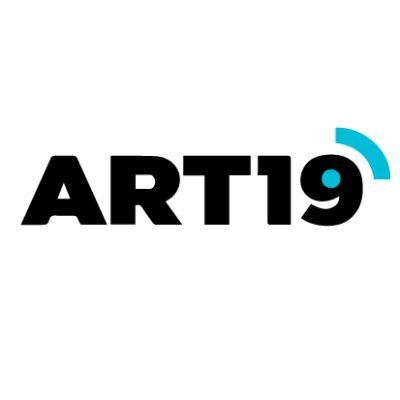Mock sample for your project: setlist.fm API
Integrate with "setlist.fm API" from setlist.fm in no time with Mockoon's ready to use mock sample

setlist.fm API
setlist.fm
Version: 1.0
Integrate third-party APIs faster by using "setlist.fm API" ready-to-use mock sample. Mocking this API will allow you to start working in no time. No more accounts to create, API keys to provision, accesses to configure, unplanned downtime, just work.
Improve your integration tests by mocking third-party APIs and cover more edge cases: slow response time, random failures, etc.
Description
The setlist.fm API has been designed to give you easy access to setlist data in order to build fancy websites and
other applications. Before starting to use the API, be sure to ...
... understand how setlist.fm works (the FAQ and the
Guidelines are a good starting point), ... read this documentation carefully and ... apply for an API key (link for logged in users only) - if
you're no registered user yet, then register first (it's free).
If this documentation isn't enough or if you've got other things you'd like to tell us about the API, visit the
API Forum.
Note that the setlist.fm API is, according to the API terms of
service, only free for non-commercial projects. If you're interested in using the API for commercial purposes,
contact us.
About this Service
This service provides methods to get both setlists and components of setlists such as artists, cities, countries or
venues.
Supported Content Types
The REST service currently supports XML (default) and JSON content.
To receive a JSON response, set the Accept
header to application/json.
Internationalization
(Please note that this is an experimental feature and does not work for all cities!)
Most of the featured methods honor the Accept-Language
header. This header is used for
localizing cities and countries. The default language is English (en), but you can provide any of the languages
Spanish (es), French (fr), German (de), Portuguese (pt), Turkish (tr), Italian (it) or Polish (pl).
E.g. if you search a setlist for a concert that took place in Vienna and you pass "de" as header, you'll
get"Wien, Österreich" instead of"Vienna, Austria".
This also works if you use a different language than the country's native language.
E.g. for a concert in New York, you'll get"Nueva York, Estados Unidos" instead of"New
York, United States" if you pass "es" as language.
API Keys
API keys ( application form) must be included in the request with
the x-api-key header.
Version History
Version
Docs
End of Service
1.0
Docs
0.1
December 31, 2017
Other APIs in the same category

Service Management API
API Gateway API

Books API

Google Play Android Developer API

ART19 Content API Documentation
API requests MUST use the HTTP Accept header:
Accept: application/vnd.api+json
API requests MUST be authenticated using the HTTP Authorization header:
Authorization: Token token="your-token", credential="your-credential"
General Notes
Some query parameters use unencoded [ and ] characters simply for readability. Defaults, examples, and
possible values are additionally rendered in double quotes for readability. In practice, query parameters should
not have quotes around the values (e.g., foo=bar is valid, not foo="bar"), and both query parameter keys
and values must be percent-encoded, per the requirements in RFC 3986 § 3.4.
Rate Limiting
In order to provide a fair distribution of available resources, all API calls are subject to rate limits.
If you exceed the number of API calls per minute granted to your credential, a 429 Too Many Requests
error response will be returned.
In that case, a Retry-After header MAY be included in the response, describing the number of seconds
after which a request can be retried.
If you run into a high number of 429 errors, please reach out to ART19 Support to adjust your rate limit.
Example
In the following example the request can be retried after waiting for 21 seconds:
HTTP/1.1 429 Too Many Requests
Content-Type: text/html
Retry-After: 21
Pagination
Requests to collection endpoints SHOULD provide pagination parameters.
Some endpoints REQUIRE pagination parameters to be provided.
Whenever pagination is provided, it MUST be valid.
Failing to provide pagination when it is required or providing wrong or incomplete pagination
always results in a 400 Bad Request error response.
The page numbering starts with 1 and the maximum page size (if not otherwise documented
on an endpoint) is 100. Pagination MUST NOT be specified if requesting a list of IDs (using an ids[] parameter).
Providing invalid values for page number or page size, as well as providing only a page number or only a page size,
is considered an error. Pagination is provided like this:
page[number]=1&page[size]=25
Responses conform to the JSON:API specification's pagination section
by including pagination links. Your requested page size will be carried into the pagination links.
Sorting
Requests to collection endpoints usually accept a sort parameter. Please refer to the
JSON:API Specification's sorting section for further details.
Relationship Linking
Currently, resources return all of their relationships, in no particular order, pursuant to how relationships
should be returned according to the JSON:API specification. Consumers of this API
MUST NOT make assumptions about the order of these collections. Even though this data is not currently paginated, consumers MUST support
paginating relationships per the JSON:API specification if this data is important for their application.

Google Chat API
Cloud Billing Budget API
App Engine Admin API
